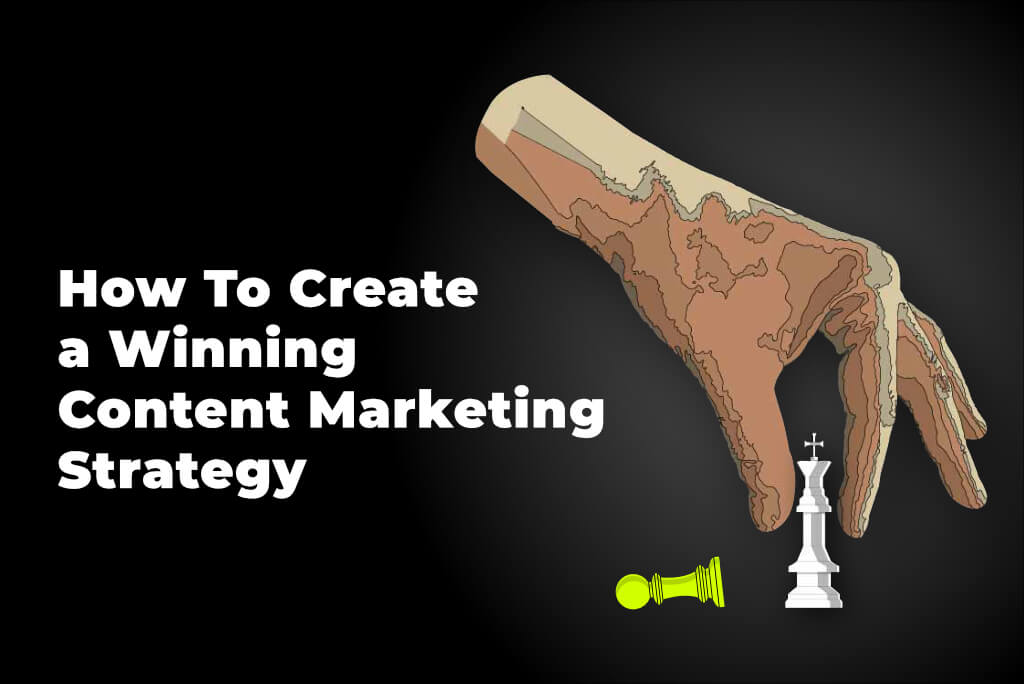Whether your business is a small start-up or a well-established brand, developing a strong content marketing strategy is key in driving consistent results. It helps you set goals for every piece of content you create and breathe sense into your efforts.
Most people think that an effective content marketing strategy has to be something overly complicated, but that’s not true at all. In fact, the most effective marketing strategy is rather straightforward.
In this article, we’ll show you how to create a winning content marketing strategy in nine simple steps. But first, let’s take a look at what exactly a content marketing strategy is and what it can bring to your business.
What Is a Content Marketing Strategy?
A content marketing strategy is a plan that outlines how a business will create, publish and distribute content to attract, engage and retain a clearly defined target audience. It involves identifying the audience’s needs and interests, creating content that addresses them and delivering that content through appropriate channels.
If done right, a content marketing strategy can help you build trustful and long-term relationships with your target audience, improve your site rankings, raise brand awareness and increase the number of leads and sales. According to HubSpot, 70% of companies across the globe invest vast sums of money in their content marketing strategy. Businesses with blogs get 68% more leads, while 72% of B2B marketers say that content marketing strategy has helped them increase engagement and convert visitors into marketing leads.
9 Tips To Develop a Winning Content Marketing Strategy in 2023
Here are nine steps to create a killer content marketing strategy in 2023 and convert your site into a lead generation machine.
Set Goals for Your Content Marketing
Kick things off by setting your content marketing goals and determining whether you want to build brand awareness, generate leads or simply attract traffic from search engines. You should also establish your content’s unique value proposition.
Everyone has their own objectives when it comes to content marketing strategy, but some of the common goals include attracting links to the website, increasing brand awareness, getting inbound leads and boosting brand authority.
Know Your Audience and Create a Buyer Persona
Content marketing is not just about bringing traffic to your website but also about attracting people who are interested in buying your product or service. Identify your target audience first, and then map out a marketing funnel to distribute your content to draw them into your universe.
Once you have your audience in mind, create buyer personas. Survey your existing customers, research the industry trends, identify barriers, and analyse your audience’s gender, age, location and language characteristics to get insights into what type of content you should create (for example, blog posts, podcasts or short-form videos) and which channels you should use to distribute your content.
Establish What People Are Searching For
In addition to knowing your audience, you need to establish what they are searching for on the search engines. If your target customers are not searching for the type of content you create, you are already losing the organic search game.
To align your content with your target audience’s search terms, do your own research and utilise keyword research tools, which can help you find the search volume of relevant keywords on Google and YouTube and other useful SEO metrics, such as the keywords your competitors are ranking for. Choosing the right keywords to target will greatly help you in optimising your content for SEO. Take a look at this blog post to learn about optimising your content for SEO if you’re a SaaS company.
Perform a Competitor Analysis
To step up your content marketing strategy, put on your spy goggles and perform a competitor analysis. Begin by doing a website and social media audit to analyse their content marketing funnel and plans, including target keywords, content types, marketing tactics, frequency of publication, unique value proposition and distribution channels.
Think of ways to create a realistic content marketing strategy to outperform your competitors and stack up to their content creation efforts. Be sure not to replicate their content, as your readers will be expecting different content from your competitors.
Choose Your Content Type and Channels
The information you have gathered from the competitor analysis will help you choose your content type and channels. For instance, if you plan to use LinkedIn to reach your target audience, you must maintain a consistent presence on it.
Similarly, if you want to use search engines to attract more leads and drive organic traffic, you have to optimise your content for search engines. Within this process, do not neglect image SEO. Prioritise the topics most relevant to your business and determine the distribution channels. For example, you can choose owned media channels such as your website, blog and email newsletter; paid media channels such as social ads and PPC; or earned media channels such as forums, reviews and guest blogs.
Choose Your Core Topics
Have you ever felt unsure about how to choose the topics for content marketing? If your answer is yes, you’re not alone. It can be hard to keep a constant stream of ideas flowing and continually think about new topics that your audience craves.
To decide on your core topics, you need to be clear on your business’s goals and why you have a content marketing strategy in the first place. Choose your core topics depending on the goals and needs of your brand. Another way to decide on your core topics is to ask your audience members what type of content they wish to see and choose the content marketing topics accordingly.
Create a Content Calendar
Creating consistent and quality content is the key to building a successful content marketing strategy. The main goal is to publish content as frequently as possible without losing quality. After all, it is useless to post content people are not interested in reading or watching.
Creating a comprehensive content calendar will give your content marketing efforts consistency and coherence and help you achieve your long-term marketing goals. A content calendar is a framework for planning and scheduling your content for different platforms in advance. It enables you to execute your plans and promote your content across marketing channels more efficiently.
Promote Your Content
Your content is not going to get promoted on its own, and you have to make efforts to get it in front of your target audience to improve its chances of being shared. Paid ads are the fastest way to get noticed. Then comes the oldest — and very effective — trick of sending content to your mailing list. Whenever you create new content, share it with your subscribers, bloggers and influencers to get more exposure. You should also share your content on social media channels. If you outsource your social media, make sure your agency is aware of your content and regularly promotes it on your channels.
Remember that your content audience falls into four categories: existing customers, potential customers, potential amplifiers (for example, journalists, bloggers, influencers and event organisers) and the broader community. If you manage to get the attention of these groups, you are likely to earn shares, links, referral traffic and even partnership opportunities.
Monitor and Analyse Results
To ensure that your content is relevant to your target audience, it is important to monitor and analyse your results regularly. There are several tools available that allow you to keep track of the rankings and measure your content’s performance, for example, Google Analytics, HubSpot and Semrush.
Reviewing and monitoring your content marketing strategy will help ensure your content marketing efforts align with your audience’s requirements and prevailing trends and get an insight into your current performance.
Conclusion
Developing a strong content marketing strategy is one of the most important steps you can take to increase your brand awareness and generate leads. A well-thought-out content marketing strategy can help you define your target audience, increase website traffic, improve search engine rankings and boost conversion rates. Most importantly, a well-executed content marketing strategy can assist you in achieving your business goals and building a strong relationship with your target audience.
If you are new to the concept of a content marketing strategy, Altlier can assist you in its development and implementation. To find out how we can help your business, check out our services page or get in touch. For more information about our process and strategies, head over to our FAQ page.



